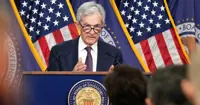Japan plans $100 billion third economic stimulus
06 Apr 2009
The Japanese government is planning a third economic stimulus package, worth 10 trillion yen (over $100 billion) to rescue the economy from the current economic crisis, its finance minister Kaoru Yosano said on Monday.
The announcement follows prime minister Taro Aso's earlier proposal for earmarking over two per cent of the country's gross domestic product (GDP) for new public spending programmes.
The new $100 billion package would take planned spending under the economic stimulus programme to around 4 per cent of Japan's GDP.
The Bank of Japan, meanwhile, is weighing new measures to bolster Asia's biggest economy from its worst crisis since World War II.
Japanese economy reported its worst performance in almost 35 years in the last quarter of 2008, contracting by more than 12 per cent.
Taken together, the three stimulus spends far exceed the stimulus spending of 2 per cent recommended by the International Monetary Fund.
With its public debt burden of nearly 200 per cent of GDP next year, Japan has limited leeway for spending boost to revive growth, according to the Organisation for Economic Cooperation and Development (OECD).
The Japanese economy, world's second largest after the US, is expected to shrink 6.6 per cent in 2009, the highest rate since 1945. The Japanese economy is hurtling down at a much faster pace than the 4.1 per cent decline registered by the euro area economies.
The package, the largest since Aso's taking office as prime minister in September, would include measures to help laid-off workers, to help cash-strapped companies secure access to credit and to encourage greater use of renewable sources of energy such as solar energy and the development of new technologies for tapping them.
The Japanese authorities, however, did not say how the new spending will be funded, and merely said there was no discussion on issuance of new bonds.
The government had already announced plans to issue fresh bonds worth around 33 trillion yen ($327.5 billion), in its biggest ever spending proposal.




.webp)


























